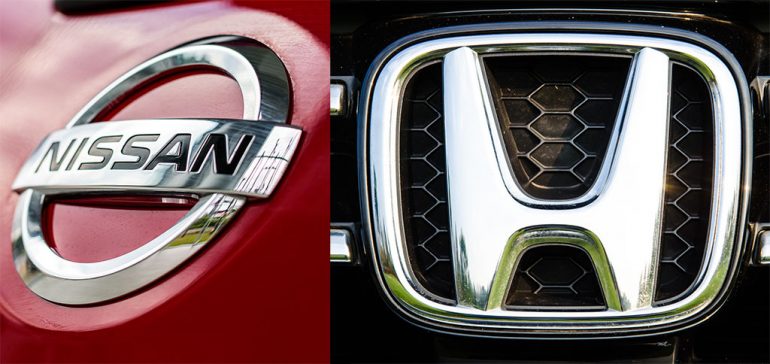
Japanese automotive giants Nissan Motor and Honda Motor are in discussions to form a strategic alliance aimed at bolstering their positions in the rapidly evolving electric vehicle (EV) market and advancing artificial intelligence in automotive software platforms. The potential collaboration signifies a departure from traditional competition dynamics as both companies seek to navigate the increasingly competitive landscape dominated by new entrants like China’s BYD and Tesla.
Nissan, known for its groundbreaking all-electric Leaf model, has recognized the need to adapt to emerging market trends. CEO Makoto Uchida acknowledges the formidable challenge posed by agile newcomers, emphasizing the importance of innovation and departure from conventional strategies for sustained competitiveness.
Also, don’t forget that you can get discounted new car pricing with a free quote through qualified local dealer partners.
Similarly, Honda, despite its established presence, faces sluggish sales and a minimal share of the EV market. With battery-powered vehicles constituting less than 0.5% of its global sales, the company is compelled to explore new avenues for growth. President Toshihiro Mibe underscores the significance of collaboration, signaling a willingness to explore potential synergies with Nissan.
The memorandum of understanding signed by the two companies reflects a commitment to explore various collaboration opportunities without predetermined limitations on scope or geographic reach. Importantly, existing partnerships, such as Nissan’s alliances with Renault and Mitsubishi Motors, will remain unaffected, ensuring continuity in ongoing ventures.
While specifics of the collaboration are yet to be finalized, potential measures include joint development of EV components, shared platforms, and procurement strategies. Both companies aim to achieve cost efficiencies through increased production levels, a critical factor in the competitive EV market.
Looking ahead, Honda has set ambitious targets, aiming for electric and fuel cell vehicles to constitute 100% of its sales by 2040. While discussions about a capital tie-up remain on the table for future consideration, the immediate focus lies on expediting decision-making processes to capitalize on evolving market dynamics.
Despite the urgency to adapt, industry analysts interpret the cautious approach taken by Nissan and Honda as a deliberate strategy to ensure a well-considered collaboration. With a six-year timeframe envisioned for joint EV development, both companies aim to balance speed with thoroughness, laying the groundwork for sustainable growth and innovation in the evolving automotive landscape.